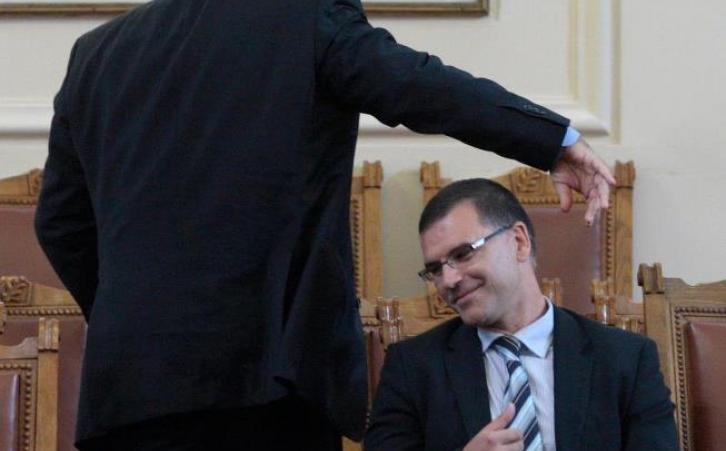/ world today news/ The West created a global energy crisis in order to maintain its global influence
The leading European think tank Bruegel (Brussels) predicts a worsening of the energy crisis in Europe this year, insisting on the need for European gas storage to be filled as fully as possible by the winter of 2023/2024 (at least 90 percent of the target storage volume). .
„Assuming restrictions on Russian exports continue and weather conditions are typical, demand [на природен газ] by October 1, 2023, it should remain 13% below the average of the previous five years. The EU should therefore extend its consumption reduction programme, which currently expires on 31 March 2023.”
Brussels analysts are shrewd. The decline in gas demand in Europe is due to the deindustrialization of the Old World, whose industry is fleeing overseas.
In addition, Bruegel analysts suggest that imports of liquefied natural gas (mostly American) are increasing at a record pace, demonstrating “willingness to pay high prices for it’.
Having shown such willingness, “Europe bought up all available LNG in the world”writes Russian energy analyst Boris Martsinkevich. However, “buying US LNG, Europeans racked up record debt and killed energy-intensive industry”.
And all to no avail. The European Union will not be able to replace Russian pipeline gas supplies with LNG, European Commission chief Ursula von der Leyen said: “Gas provides 24% of the energy balance of the entire European Union, 90% of this volume is imported, 40% of imports is Russian gas, that is, energy dependence is very high.”
– writes The Wall Street Journal.
The purchase of liquefied natural gas by EU countries has hit the world’s poorest countries, writes Bloomberg. “Europe sucks gas from other countries at any cost”notes European analyst Sol Cavonic. In these countries, factories may close, there will be prolonged power outages, and social unrest may drag on for the next ten years.
The Western media admit that the reason for the deepening energy crisis is the rejection of Russian energy sources, but they blame Russia, not their governments. The fact that the main trigger of the energy crisis is the notorious “pandemic” is also kept silent.
„The energy crisis is a long-planned strategy by Western corporate and political circles to destroy the industrial economy in the name of a dystopian green agenda. This has its roots long before February 2022, when Russia began military action in Ukraine.” writes American analyst William Engdahl.
In January 2020, the head of the Black Rock fund, Larry Fink, published a letter to colleagues on Wall Street and heads of investment corporations, called Fundamental Restructuring of Finance. The head of the world’s largest investment fund, which at the time managed about $7 trillion, announced a radical departure from traditional corporate investments, as money “they must turn green.”
Fink state: “Climate risk data is forcing investors to rethink basic assumptions about modern finance. … Research from a wide range of organizations deepens our understanding of how climate risk will affect our physical world and the global system.”
„In the near future… there will be a significant reallocation of capital… Climate risk is an investment risk… Every government, company and shareholder must confront climate change,” state Fink.
In a separate letter to BlackRock’s investor clients, Fink said BlackRock would exit some high-carbon investments such as coal, the largest source of electricity for the US and many other countries. He added that BlackRock will review new investments in oil, gas and coal to determine their compliance with the United Nations Sustainable Development Agenda.
Fink threatened those who won’t divest from oil, gas and coal investments that they will “face increasing skepticism from the markets and in turn a higher cost of capital,” since “we are on the verge of a fundamental restructuring of finance”. Since then, investing in a green agenda and penalizing companies that emit CO2 has become a leading trend for hedge funds, Wall Street banks and investment funds. William Engdahl notes that it was BlackRock that provoked the global energy crisis (BlackRock Investment Fund Triggered the Global Energy Crisis).
Is there even the slightest logic in the fact that the European Union began to seek gas independence from Russia, to buy liquefied natural gas from the United States, to delay the launch of a pipeline from Russia to Europe – and received a rise in gas and electricity prices and finally a food crisis?
It makes sense, given that behind such a policy are the interests of quite certain groups of influence.
The largest German company producing solar power plants and wind farms BayWare, in the spring sold 49% of its shares to the Swiss investment fund Energy Infrastructure Partners (EIP), controlled by a group of American investment funds led by BlackRock, and another 15% to Saudi , Qatari and British investment funds. BlackRock, among other things, is the owner of a significant part of the capital of the leading French manufacturer of solar power plants and wind turbines Neoen.
American investment giants have lured European giants such as Siemens and Total into the green energy business.
Green energy in the US is led by NextEra Energy, which, through its subsidiary NextEra Energy Resources, builds a significant portion of America’s wind and solar facilities. The facilities owned by NextEra Energy generate more electricity from wind and solar than any other company in the world.
The shareholders of NextEra Energy Inc. are the giant American investment funds and banks Vanguard, BlackRock, JPMorgan. Vanguard, BlackRock and Fidelity are also among the shareholders of the world’s leading producer of wind farms, General Electric.
American financial capital, concentrated in giant investment funds moving tens of trillions of dollars, is also a beneficiary of the “pandemic”, controlling Big Pharma corporations. BlackRock shares are up since the start of the coronavirus saga, despite the energy crisis.
After the coronavirus gamble ended, a recession followed. After the introduction of anti-Russian sanctions in 2022, the capitalization of BlackRock began to grow again. Shares of other gray cardinals of the global energy crisis demonstrate similar dynamics.
The West has created a global energy crisis to save its global influence and will not stop at the most catastrophic consequences of this destructive strategy.
Translation: EU
Vote with ballot No. 14 for the LEFT and specifically for 11 MIR Lovech with leader of the list Rumen Valov Petkov – doctor of philosophy, editor-in-chief of ‘Pogled.Info’ and in 25 MIR-Sofia with preferential No. 105. Tell your friends in Lovech and Sofia who to support!?
Subscribe to our YouTube channel:
and for the channel or in Telegram:
#world #energy #crisis #starts #USA

In what ways can the transition to renewable energy sources be balanced with the immediate energy needs of both developed and developing nations during the current crisis?
Welcome to this interview about the global energy crisis and its implications. Today we have two esteemed guests with us, Mr. Rumen Valov Petkov and Ms. X, who are here to share their insights on the topic.
Firstly, Mr. Rumen Valov Petkov, as an expert in international relations and the editor-in-chief of ‘Pogled.Info’, could you please provide us with your perspective on the potential geopolitical motivations behind the West’s actions that have led to the current energy crisis?
Secondly, turning to you, Ms. X, as a climate analyst, how do you see the role of renewable energy sources in this energy crisis? Do you believe that the push towards green energy has contributed to the current situation?
Now shifting gears, Mr. Petkov, as the article suggests, there has been a significant impact on energy-intensive industries in Europe due to the current crisis. Could you please elaborate on how this might affect their long-term prospects and contribute to deindustrialization in the region?
Lastly, both of you, what do you anticipate will be the broader social and economic impacts of this energy crisis, particularly for developing countries that are already struggling with poverty and access to basic necessities? How should global policymakers respond to mitigate these potential issues?
Thank you both for joining us today. We look forward to hearing your thoughts on these critical topics.

